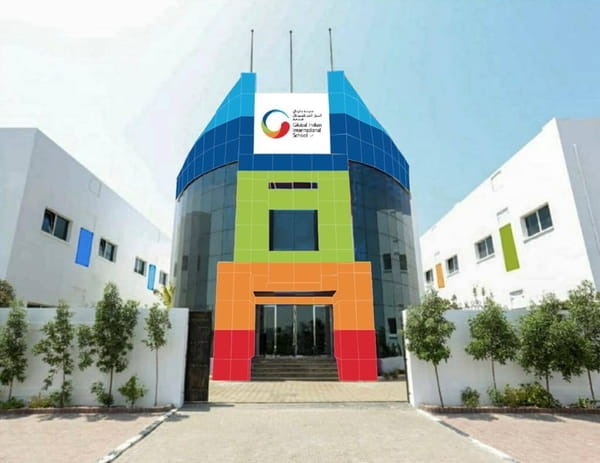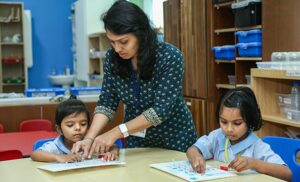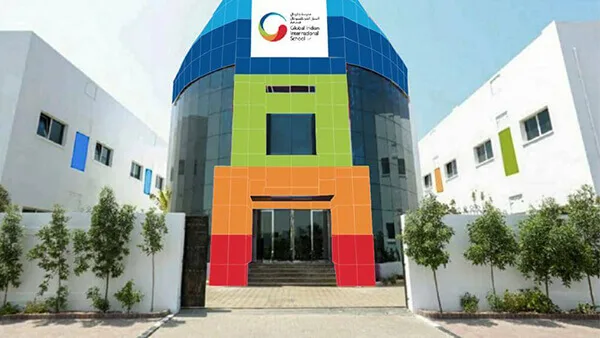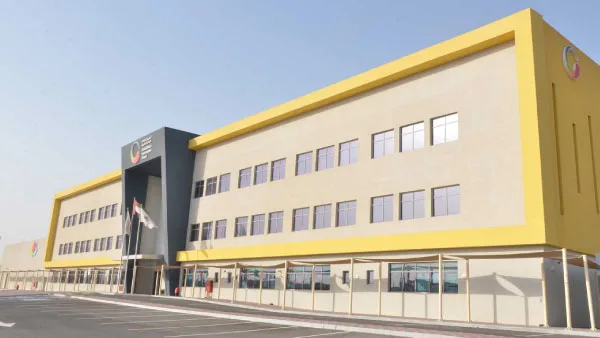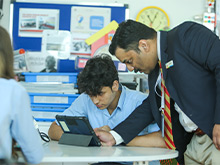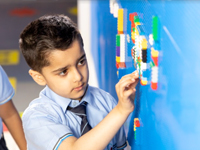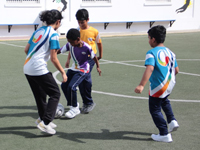In a rapidly changing world, it is crucial for students to develop future-ready skills that will prepare them for the workforce of tomorrow. As technology continues to advance and global challenges arise, employers seek individuals who possess a combination of technical and soft skills that can adapt to changing circumstances.
Future-ready skills include critical thinking, problem-solving, collaboration, digital literacy, communication and creativity. These skills are essential for success in any field and will ensure that students are equipped with the tools they need to excel in their careers.
It is important for educators at international schools in Dubai to recognize the importance of teaching these future-ready skills in addition to traditional subject matter. By incorporating these skills into curriculums and providing opportunities for practice and development, schools can better equip students for success in an ever-evolving job market.
What Skills Will Be Still Highly Regarded in The Future?
As the world continues to evolve, it’s important for students to develop skills that will be highly regarded in the future. While technology and automation have transformed many industries, certain skills remain in high demand and will continue to be valued in the years ahead. These skills are not only valuable in terms of employability but also for personal growth and adaptability. Here are some future ready skills that are expected to be in high demand:
1. Critical Thinking and Problem-Solving: With the rapid advancements in technology and the complex challenges facing society, the ability to think critically and solve problems creatively will be essential. Students who can analyze situations, evaluate information, and come up with innovative solutions will be highly sought after.
2. Communication: Effective communication skills are crucial in all aspects of life. Whether it’s conveying ideas clearly, listening actively, or collaborating with others, strong communication skills are necessary for success in any field. In an increasingly globalized and interconnected world, being able to communicate across cultures and through various mediums is becoming even more important.
3. Creativity and Innovation: As automation and artificial intelligence continue to replace routine tasks, human creativity and innovation become highly valuable. The ability to think creatively, generate new ideas, and approach problems from different angles will give students a competitive edge in the future job market.
4. Collaboration: Collaboration is essential in the modern workplace, where teams often work together to achieve common goals. Students who can effectively collaborate, contribute their unique perspectives, and work well with others will be in high demand. Collaboration also fosters diversity of thought and encourages the exchange of ideas, leading to better outcomes.
5. Digital Literacy: In an increasingly digitized world, future ready programs such as digital literacy is vital. Students need to be comfortable with technology, understand how to use digital tools, and adapt to new platforms and software. Digital literacy encompasses skills such as information literacy, online communication, cybersecurity, and data management.
6. Emotional Intelligence: Emotional intelligence refers to the ability to recognize, understand, and manage one’s own emotions, as well as empathize with and relate to others. It plays a vital role in building strong relationships, resolving conflicts, and collaborating effectively. In an increasingly diverse and interconnected world, students with high emotional intelligence will excel in team environments and leadership positions.
7. Adaptability and Resilience: The future is likely to bring unpredictable changes and challenges. Students who can adapt quickly, embrace new technologies, learn new skills, and bounce back from failures or setbacks will thrive. Adaptability and resilience allow individuals to navigate uncertain situations, remain agile, and seize opportunities for growth and success.
These skills form a foundation for lifelong learning and will equip students with the tools they need to thrive in a rapidly evolving world. When a teacher helps students to develop future ready skills, she is preparing them to be versatile, adaptable, and valuable contributors in the future workforce.
Types of Future-Ready Learning Skills
In today’s fast-paced and ever-changing world, it is essential to develop future-ready learning skills. These skills enable individuals to adapt quickly to new technologies and work environments, ensuring their success in the long term. Here we are going to discuss some of the types of future-ready learning skills that are becoming increasingly important for student development.
1. Technology Skills: In an increasingly digital world, students need to be proficient in using and understanding technology. This includes skills like operating computers and software, navigating the internet, utilizing productivity tools, and being aware of digital security and privacy.
2. Emotional Skills: Developing emotional intelligence is crucial for students to understand and manage their own emotions effectively. It involves self-awareness, self-regulation, empathy, and building healthy relationships. These skills promote emotional well-being and positive interactions with others.
3. Cultural Awareness: With the growing interconnectedness of our world, students need to develop cultural awareness and sensitivity. This skill enables them to appreciate and respect diverse cultures, traditions, perspectives, and adapt to different environments. It fosters inclusivity, empathy, and global citizenship.
4. Flexible Thinking: The ability to think flexibly and adapt to new situations or problems is essential in a rapidly changing world. Students with flexible thinking skills can approach challenges from multiple perspectives, explore innovative solutions, and embrace uncertainty. This skill encourages creativity, adaptability, and critical thinking.
5. Adaptive Thinking: Adaptive thinking complements flexible thinking by emphasizing the ability to adjust and learn from new challenges. Students who possess adaptive thinking skills can quickly analyze and respond to unexpected situations, think creatively, and demonstrate resilience in the face of obstacles. This skill encourages problem-solving and a growth mindset.
6. Collaboration and Communication: Collaboration and communication skills are crucial for effective teamwork and interpersonal relationships. Students should learn how to actively listen, express their ideas clearly, work collaboratively, and resolve conflicts constructively. These skills promote effective collaboration, cooperation, and understanding.
7. Information Literacy: In an era of abundant information, students need the ability to find, evaluate, and use information critically. Information literacy skills enable students to assess the reliability and credibility of sources, differentiate between fact and opinion, and synthesize information effectively. This skill supports critical thinking, research abilities, and responsible information consumption.
8. Lifelong Learning: Encouraging a positive attitude towards learning and developing self-motivation is vital for students. Lifelong learning skills involve setting goals, seeking continuous improvement, being curious, and utilizing available resources for self-directed learning. These skills promote personal growth, adaptability, and the ability to keep pace with evolving knowledge.
9. Resilience and Adaptability: Students need to develop resilience to navigate setbacks and challenges effectively. Resilience skills involve bouncing back from failures, managing stress, problem-solving, and adapting to change. This skill encourages perseverance, self-confidence, and the ability to overcome obstacles.
10. Global Awareness: In an interconnected world, students should be aware of global issues, social and environmental responsibility, and ethical decision-making. Global awareness skills encompass understanding different perspectives, promoting sustainable practices, engaging in civic responsibilities, and contributing to positive change. This skill fosters global citizenship and empathy towards diverse communities.
Technology Use in Future Ready Learning Skills
Technology is super important for students enrolling for school admission because it prepares them for the future. It is one of the most important skills for students’ success in a digital world. One imperative thing is digital literacy, which means knowing how to use computers, the internet, and different software. It’s like learning the basics of operating a computer and finding information online. Another thing is being able to manage information. There’s so much stuff on the internet, so students need to learn how to find reliable information and organize it properly.
Students can also use technology to work together with classmates and teachers. They can talk to each other through video calls or messaging, and even work on projects together using online tools. This helps them learn how to collaborate with others, even if they’re far away. Technology also allows students to be creative and think of new ideas. They can use digital tools to make art, solve problems, and even create virtual things. It’s like having a bunch of cool tools that help them come up with new and exciting things. And most importantly, technology as an educational tool helps students learn in a way that’s personalized for them. They can use special programs that adapt to their needs and help them learn better. It’s like having a teacher that knows exactly what each student needs and helps them learn in the best way possible.
The Benefits Of Future-Ready Learning Skills
Future-ready learning skills can help students stay healthy, engaged, and connected. They can also help students develop a growth mindset, which is essential for success in today’s world. Let’s explore further the benefits of future ready learning skills for students’ development
1. Increased opportunities for success in college and beyond. Future-ready skills are essential for success in college and beyond. These skills will help students succeed in their coursework, find internships, and get jobs after graduation.
2. Improved ability to solve problems and think critically. Future-ready skills, such as critical thinking and problem-solving, are essential for success in today’s world. These skills will help students identify and solve problems, think creatively, and make sound decisions in every step of their life.
3. Increased adaptability and flexibility. The world is constantly changing, so it’s important for students to be able to adapt to new situations. Future-ready skills, such as adaptability and flexibility, will help students stay ahead of the curve and be successful in the future.
4. Enhanced personal and professional development. Learning new skills can help students grow as a person and as a professional. They’ll gain new knowledge and insights, and they’ll also develop new skills and abilities. This can lead to increased confidence, satisfaction, and fulfillment in their lives.
5. A more fulfilling and rewarding life. Having future-ready skills can open up new opportunities and experiences for students. They’ll be able to learn new things, meet new people, and make a difference in the world. This can lead to a more fulfilling and rewarding life.
Conclusion
In conclusion, it is clear that future-ready skills are essential for student achievement in today’s society. By developing these competencies during their education, students will be better equipped to navigate the challenges of the modern workplace and contribute meaningfully to their communities. It is up to teachers and parents alike to prioritize these learning strategies in their teaching and parenting practices so that children can learn to thrive in an uncertain future.
FAQs
What Skills Do Students Need in The Future?
Here are some of the most important skills that students will need in the future:
● Analytical reasoning and problem-solving: These skills are essential for success in any field. Students who can think critically and solve problems will be able to adapt to new situations and come up with creative solutions.
● Creativity and innovation: These skills are important for coming up with new ideas and solutions. Students who are creative and innovative will be able to think outside the box and find new ways to solve problems.
● Interpersonal interaction: These skills are essential for working effectively with others. Students who can communicate effectively and collaborate with others will be able to work well in teams and get things done.
● Technology skills: This skill is essential for living and working in the digital age. Students who are digitally literate will be able to use technology to their advantage and stay up-to-date on the latest trends.
● Worldview: This skill is important for understanding the world around us. Students who are globally aware will be able to appreciate different cultures and perspectives.
● Emotional intelligence: This skill is important for understanding and managing one’s own emotions, as well as the emotions of others. Students who are emotionally intelligent will be able to build strong relationships and work effectively in teams.
● Versatility: This skill is important for being able to adapt to change. Students who are adaptable and flexible will be able to thrive in a constantly changing world.
What Skills Do Students Need To Be Successful?
There are many skills that students need to be successful in school and beyond. Some of the most important skills include:
● Academic skills: These include the ability to read, write, and do math at a high level. Students also need to be able to learn new concepts and apply them to different situations.
● Critical thinking and problem-solving skills: These skills allow students to analyze information, identify problems, and develop solutions. They are essential for success in college and the workplace.
● Communication skills: These skills allow students to express themselves effectively, both orally and in writing. They are essential for collaborating with others and working on group projects.
● Interpersonal skills: These skills allow students to interact effectively with others. They are essential for building relationships and working in teams.
● Self-management skills: These skills allow students to set goals, manage their time, and stay organized. They are essential for success in school and beyond.
● Resilience: This is the ability to bounce back from setbacks and challenges. It is essential for success in the face of adversity.
What is The Importance Of Developing Skills For Students?
Developing skills is of paramount importance for students as it equips them with the necessary tools to thrive in today’s complex and competitive world. Students Skill development enhances their intellectual, social, and emotional capabilities, enabling them to tackle academic challenges with confidence and adaptability. By cultivating a wide range of skills, students become better critical thinkers, effective problem solvers, and proficient communicators. These abilities not only aid in their academic success but also pave the way for future career prospects. Moreover, skill development fosters personal growth, resilience, and a sense of self-efficacy, empowering students to navigate life’s uncertainties and make informed decisions. Ultimately, investing in skills development sets the stage for lifelong learning and enables students to contribute meaningfully to society.
What Are The Benefits of Learning New Skills?
Learning new skills has many benefits for students. Firstly, it makes them more curious and interested in learning, which can last a lifetime. It also helps them do better in school by improving their memory, focus, and critical thinking skills, leading to higher grades. Learning new skills also prepares students for the future by teaching them problem-solving and adaptability, which are important in college and the working world. It gives them the chance to explore different things and discover their talents and passions. Lastly, learning new skills boosts students’ confidence and makes them believe in themselves more.
Why is It Important To Know Your Skills?
Knowing your skills is crucial because it empowers you to navigate through life with clarity, purpose, and effectiveness. Understanding your unique abilities enables you to make informed decisions about your education, career choices, and personal development. By recognizing your strengths, you can capitalize on them, honing them to their fullest potential and finding opportunities that align with your natural aptitudes. Likewise, identifying areas for improvement allows you to pursue growth and acquire new skills that broaden your horizons. Self-awareness of your skills fosters confidence and resilience, enabling you to tackle challenges with a strategic mindset. It also facilitates effective communication, as you can clearly articulate your abilities and contributions, whether in job interviews, team collaborations, or personal relationships. Ultimately, knowing your skills grants you a powerful tool to shape your path, maximize your potential, and lead a fulfilling and purpose-driven life.
